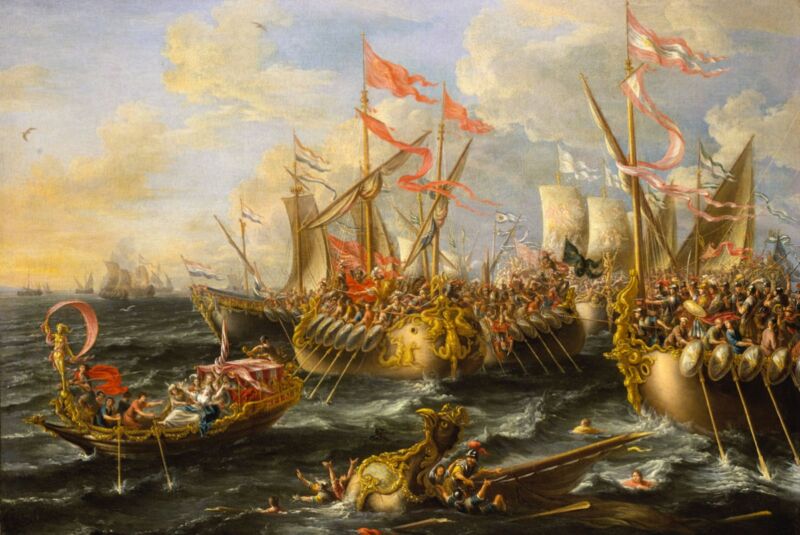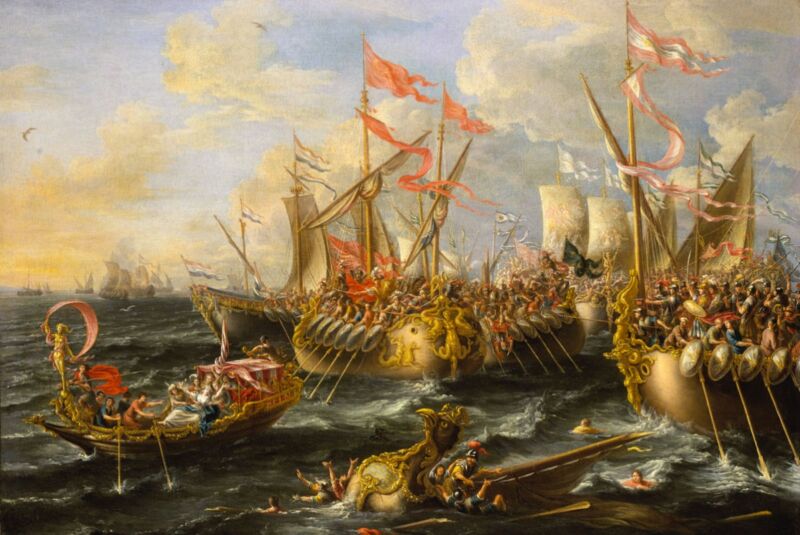
Enlarge / Anachronistic baroque painting of the pivotal Battle of Actium by Laureys a Castro, 1672. (credit: Public domain)
Historians widely consider the Battle of Actium in 31 BCE to be the decisive event that led to Octavian defeating Mark Antony and Cleopatra. The couple committed suicide—Antony by stabbing himself in the stomach, and Cleopatra by the bite of an asp (or, alternatively, by some other poison). Octavian subsequently became the Roman Emperor Augustus, thereby ushering in the Pax Romana, a 200-year period of peace and prosperity that lasted until 180 CE.
Barry Strauss, a historian at Cornell University, argues that the true pivotal moment in the conflict occurred some six months before as part of a strategic campaign to cut off the supply lines for Antony and Cleopatra’s forces. Strauss makes his case in his new book, The War that Made the Roman Empire: Antony, Cleopatra, and Octavian at Actium, re-creating the battle in detail, as well as what he maintains was the turning point of the war six months before.
This is a particularly dramatic historical period that inspired two separate historical plays by William Shakespeare. Roman general and statesman Julius Caesar was famously stabbed to death at the Curia of Pompey on the ides of March in 44 BCE. The senators who killed him thought assassination was the only way to preserve the republic, but the murder ultimately led to the republic’s collapse. The following year, Caesar’s adopted son, Octavian, formed the Second Triumvirate with Mark Antony and Marcus Aemilius Lepidus.





